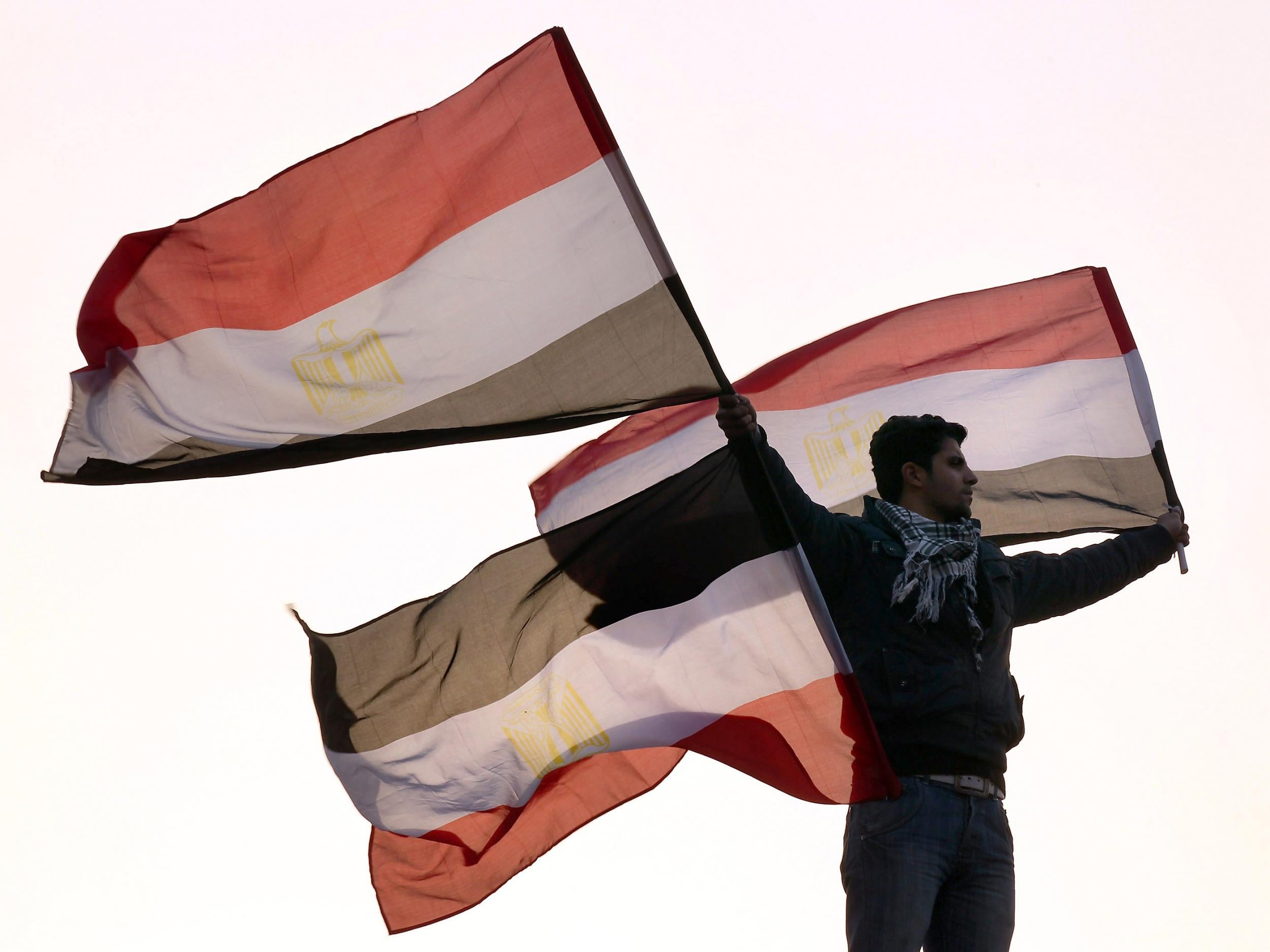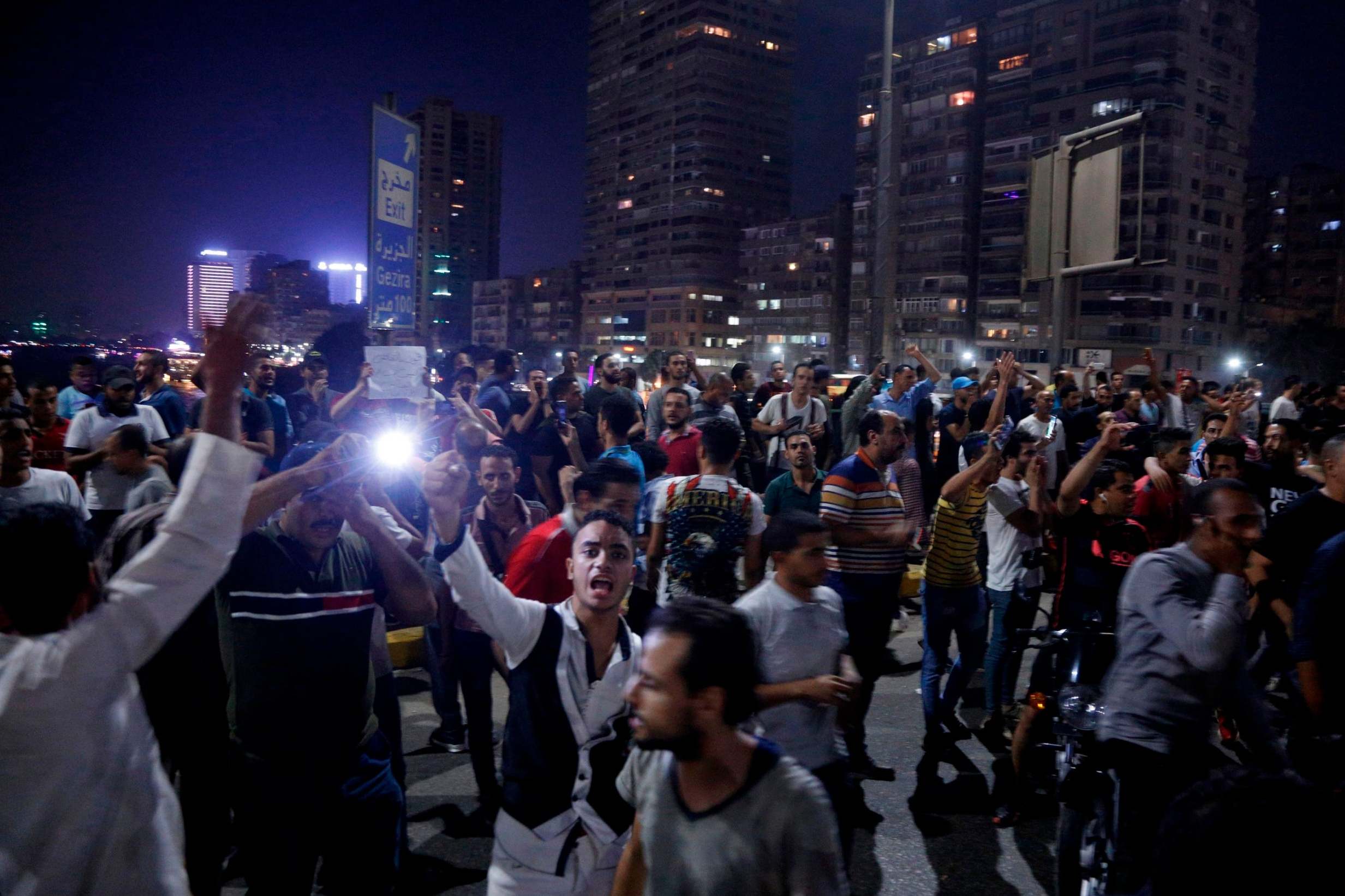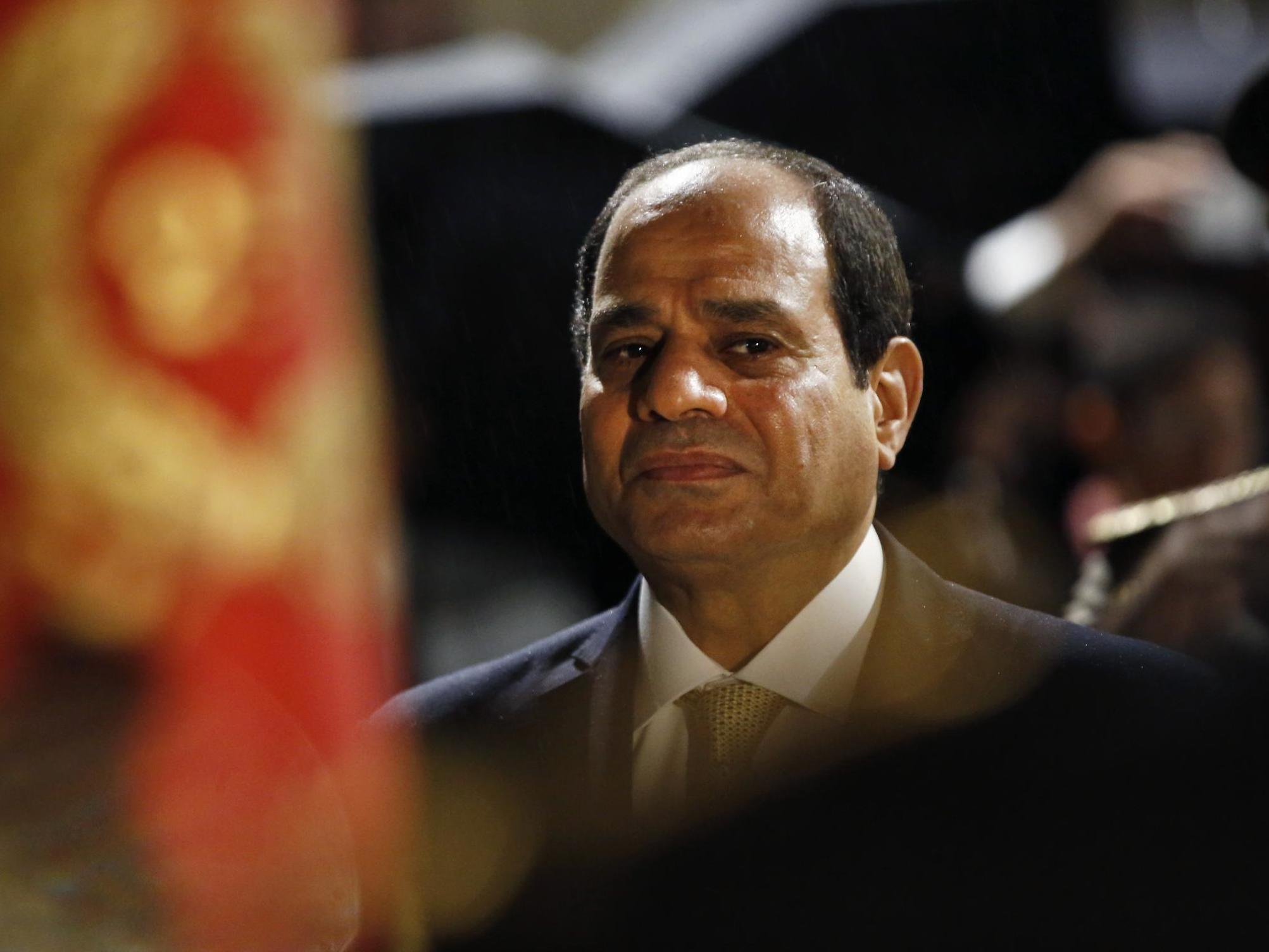‘I’m just struggling to have a decent life’: How anti-government protests took Sisi by surprise
More than 2,800 people have been detained during the protests, according to one rights group

Ayman had always dismissed the idea of protesting against Egypt’s government; hesitant to get himself involved unnecessarily in politics.
But with the dismal economic situation making it difficult to provide for his family, he decided enough was enough. The 36-year-old upholsterer in Damietta went to join the rallies last month, tearing down a large poster of President Abdel Fattah al-Sisi with hundreds of other protesters.
“I don’t care about politics, but I have been struggling to have a decent life for my children since the president came to power,” he told The Independent. “Their [the government’s] economists say everything is improving, but how can that be if my income has almost halved in value?”
A recent report by the government estimated that some 32 million of the country’s 100 million population are under the poverty line. With non-governmental organisations banned from conducting any surveys, the figure could be much higher.

The recent protests were sparked by a series of videos posted by businessman Mohamed Ali, who alleged that public funds had been used to build hotels and palaces for the president and members of the army.
Mr Ali’s call for protests went viral – yet many Egyptians who watched them did not expect anything to happen. However, on 20 September, hundreds of demonstrators across different cities managed to shake al-Sisi’s confidence by chanting against his regime.
Last week, Egyptian security forces blocked access to Cairo’s revolutionary heart – Tahrir Square. The city’s main metro stations were closed and traffic was diverted, while police vans roamed, their sirens echoing through the empty streets. Yet barricading the square did not keep everyone at home – dozens of protesters were dispersed by tear gas in several districts around and just outside the metropolis.
The scenes are a far cry from 2017, when young Egyptians who wanted their voices to be heard were invited to Sisi’s World Youth Forum, with 3,000 delegates from around the world. Egypt ran an advertising campaign for the conference, where the opening scene showed a woman in heels in a European-looking street while an English voice-over said: “If there are streets you can’t cross and clothes you can’t wear, we need to talk.”
Now, just two years later, it is clear that Egypt is anything but a place for youth to be heard.
“This is all happening while al-Sisi builds palaces for his family and friends,” Ayman said in frustration.

The president has repeatedly blamed any dissent on political Islam, but secular Egyptians and high-profile socialist figures have all been arrested. According to the Cairo-based Egyptian Centre for Economic and Social Rights, more than 2,800 politicians, journalists, human rights lawyers, and ordinary citizens were detained.
The award-winning lawyer Mahienour El-Massry was detained outside a courthouse where, minutes before, she was defending protesters. Another lawyer, Mohamed El-Baker, was representing an activist before being told he was also being charged in the same case.
But the president nevertheless appears to have been caught by surprise. Al-Sisi announced last week that subsidies would be restored for 1.8 million citizens.
For Timothy E Kaldas, a non-resident fellow at the Tahrir Institute for Middle East Policy, this shows that the government concluded it needed to try and address people’s discontent, rather than just trying to repress it away – at least for now. “That said, the arrest of many leading opposition figures, who continue to be held, reflects a fear that this discontent that drew people to the street is a tinder in society waiting to be sparked and mobilised,” he said.
When al-Sisi arrived back from his trip to the UN General Assembly in New York, he was greeted by a pro-government rally awaiting him at an off-limit area in Cairo’s airport. “You didn’t have to wake up on a Friday, it’s not worth it. Don’t worry about anything,” he jokingly told his supporters.
Another pro-government gathering took place in Cairo’s area of Nasser City, where hundreds gathered, flanked by security, and waved the Egyptian flag wearing T-shirts of the president.
“The situation in Egypt is similar to a film shooting scene, where furniture pieces are put carefully in place but, in reality, these pieces are merely a decoration,” said Mohamed Zarea, Egypt program director of the Cairo Institute for Human Rights Studies. “The flames have been distinguished but another fire is waiting to be sparked – unless a major change happens.”
The author’s name has been changed for security reasons
Join our commenting forum
Join thought-provoking conversations, follow other Independent readers and see their replies
Comments
Bookmark popover
Removed from bookmarks